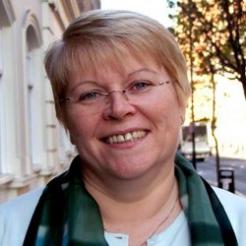Lesley-Anne Alexander, chief executive of RNIB and chair of Acevo, has suggested that the Charity Commission “raise the barriers to entry” and require people registering a new charity to research other charities already working in that area to avoid duplication.
Giving a lecture last night at Cass Business School she said: “The barriers to entry in our sector are very low – anybody with limited financial resources and very little experience can set up a charity.”
She suggested that: “When someone says that they would like to set up a charity, I would like the Charity Commission to say ‘Ok you have to spend six months researching what else is going on in that landscape and you have to spend six months talking to the to other charities in that slice of the market so that so people don’t set up their own charity to start with.”
Alexander said: “If people came to talk to us at RNIB rather than setting up a charity, we can embrace them and adopt their cause and avoid the bureaucracy associated with setting up and running a charity."
She welcomed outgoing Charity Commission chief executive Sam Younger’s recent comments about there being too many charities, and said: “Though I do wish the chief executive of the Charity Commission had realised this at the start of his tenure, he has added weight to the argument.”
The fact that there are 733 registered to support blind and partially sighted people is “the real challenge” according to Alexander. She argues that: “It confused people our customers and dilutes our message and creates unnecessary competition.”
While she said she doesn’t want there to be one single “monolithic” sight loss charity, she argued: “Choice has to be real and not the ability to choose between two under funded, incomplete and competing services.”
Charities have a lot to offer the economy
Alexander had a tough message for politicians and business leaders, and a rallying call for charity leaders. She said: “I think the voluntary sector needs to come of age – no longer should we be viewed as second best to the private sector.”
She said: “Politicians and business leaders need to wake up to the fact that we are the waking sleeping giant in the economy and that we are an integral part of the new economic reality.”
Responding to comments from Mark Carney, governor of the Bank of England, and Christine Lagarde, managing director of the IMF, urging businesses to adopt ethical approaches, she said: “We are willing to share our expertise and our knowledge but no longer will we be bullied into being the safety net for government to provide services for free through the use of volunteers.”
She explained that this did not mean RNIB would stop providing services that were needed, but that: “For us it is a balance between today and tomorrow - we will provide books in schools today to fill the gap but we will campaign for a better tomorrow.”
‘Be proud of the salaries that we earn'
Alexander also said that, in common with other charity chief executives, people are often surprised to find out that she gets paid for her role at RNIB, and is usually met with a “disapproving look”.
She said: “I would like to respond more robustly but I have always got the RNIB brand in mind and am thinking of what my colleagues in fundraising have to do, and I try not to blow it for them.”
“But I think the time has come where charities chief executives need to be proud of the salaries that we earn.”









